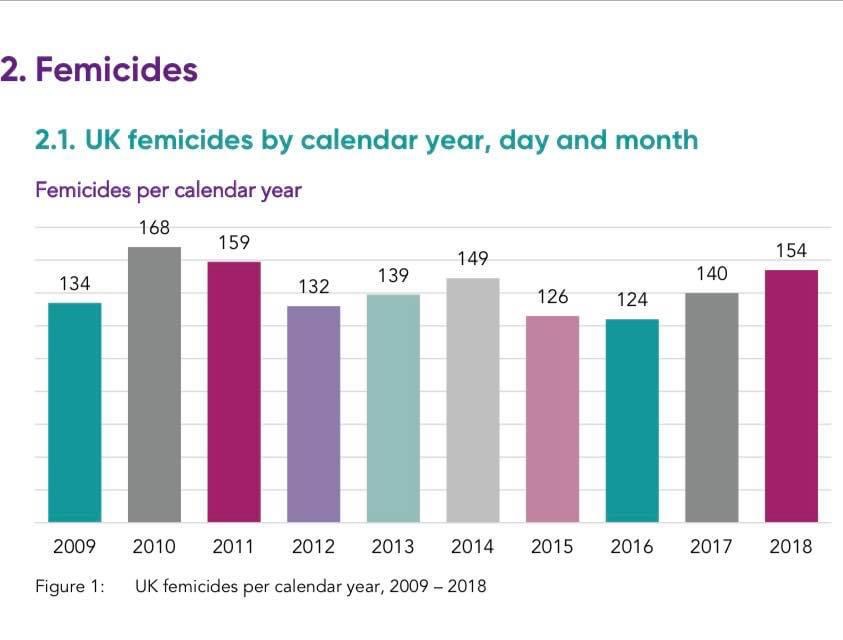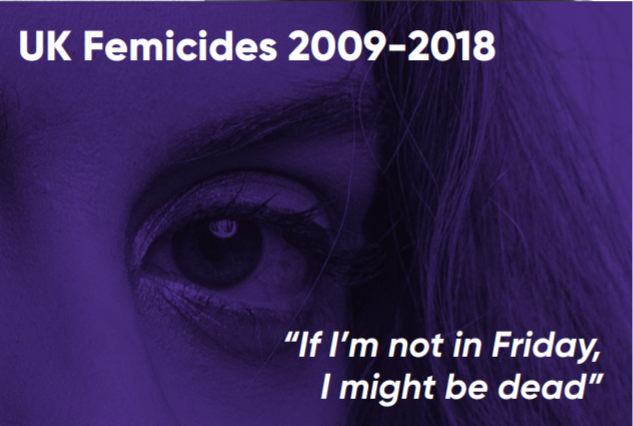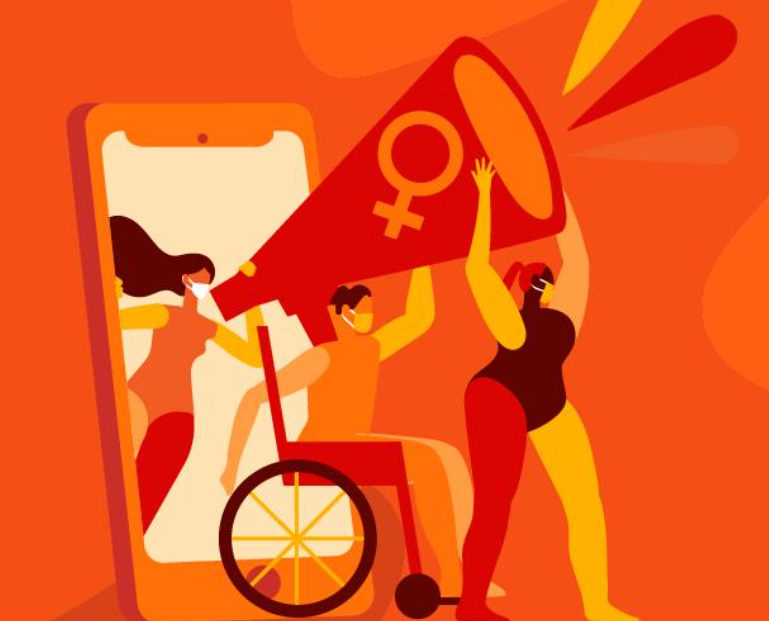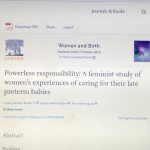The start of 16 days of activism against Gender-based Violence commenced on 25th November 2020 on the day known as the International Day for the Elimination of Violence against Women. A report: UK Femicides 2009-2018 published on the 25/11/20 has revealed that the number of women killed each year by men has stayed the same at between 124 and 168. From 2009 to 2018 at least 1,425 women were killed by men in the UK. What do these figures mean? Sadly it translates as :

- a man killed a woman every three days and
- a woman was killed by a male partner or ex-partner every four days.
In addition, the methods used, the contexts in which women are killed and their relationship with the men who kill them have changed little over the ten-year period. Women are killed by their husbands, partners and ex-partners; by sons, grandsons and other male relatives; by acquaintances, colleagues, neighbours and strangers. The rate at which men kill women shows no sign of reducing. The report is dedicated to all those women with each one named. Every single woman and girl in this report mattered. The Femicide Census is a call to action for change. femicidecensus.org 
During these 16 days of activism what can we do? What is in no doubt is that ending violence against women is mine and your business, it’s everybody’s business. UN Women have ten suggestions in which we can make a difference:
- Listen to and believe survivors
- Teach the next generation and learn from them

- Call for responses and services fit for purpose
- Understand consent
- Learn the signs of abuse and how you can help
- Start a conversation
- Stand against rape culture
- Fund women’s organizations
- Know the data and demand more of it


 elation to their needs, rather than the focus being almost exclusively on their babies.
elation to their needs, rather than the focus being almost exclusively on their babies.










 Beyond Academia: Exploring Career Options for Early Career Researchers – Online Workshop
Beyond Academia: Exploring Career Options for Early Career Researchers – Online Workshop UKCGE Recognised Research Supervision Programme: Deadline Approaching
UKCGE Recognised Research Supervision Programme: Deadline Approaching SPROUT: From Sustainable Research to Sustainable Research Lives
SPROUT: From Sustainable Research to Sustainable Research Lives BRIAN upgrade and new look
BRIAN upgrade and new look Seeing the fruits of your labour in Bangladesh
Seeing the fruits of your labour in Bangladesh ECR Funding Open Call: Research Culture & Community Grant – Apply now
ECR Funding Open Call: Research Culture & Community Grant – Apply now ECR Funding Open Call: Research Culture & Community Grant – Application Deadline Friday 12 December
ECR Funding Open Call: Research Culture & Community Grant – Application Deadline Friday 12 December MSCA Postdoctoral Fellowships 2025 Call
MSCA Postdoctoral Fellowships 2025 Call ERC Advanced Grant 2025 Webinar
ERC Advanced Grant 2025 Webinar Update on UKRO services
Update on UKRO services European research project exploring use of ‘virtual twins’ to better manage metabolic associated fatty liver disease
European research project exploring use of ‘virtual twins’ to better manage metabolic associated fatty liver disease